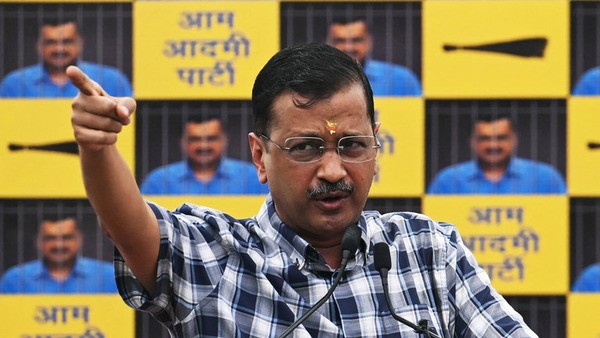Iran’s Plan to Strike Back Against the U.S.
Iran’s Military Preparations Following U.S. Attacks
Loading...

The head of India's Aam Aadmi Party was apprehended in connection with a suspected liquor scandal prior to the elections.
Less than 24 hours after being granted a 21-day bail by the Supreme Court, Arvind Kejriwal, the Chief Minister of Delhi, has resumed his participation in India's parliamentary election campaign.
Kejriwal, who leads the opposition Aam Aadmi Party (AAP), governing the national capital region and the state of Punjab, was arrested in March on corruption allegations. While he has not been convicted, proceedings in the case are ongoing.
Kejriwal vehemently denies all charges against him, portraying himself as a victim of political persecution orchestrated by the ruling Bharatiya Janata Party (BJP). In a speech delivered in New Delhi on Saturday, the AAP leader accused Prime Minister Narendra Modi's BJP of orchestrating efforts to suppress his party.
He asserted, "By arresting me, they [the BJP] have demonstrated their ability to detain anyone without valid grounds." Just moments after his release from Tihar jail, Kejriwal urged the public to "protect the country from dictatorship."
During a subsequent press conference on Saturday, the opposition leader also challenged the BJP's position on the retirement age of political figures.
He proposed that Modi, who is set to reach the age of 75 next year, step down, referencing Modi's own stance in 2014 — when the BJP rose to power — that politicians over 75 should not hold governmental administrative roles. Kejriwal implied that Modi's retirement would create an opening for Union Minister Amit Shah to assume the role of prime minister.
These comments elicited a sharp retort from Shah, who affirmed that Modi would resume his position as prime minister and continue to "guide the nation until 2029."
Simultaneously, Kejriwal raised doubts about the ruling party's capability to secure a majority and form the government in the general election.
India's election to appoint 543 members of the lower house of parliament (Lok Sabha) for the next government is hailed as the world's "largest democratic exercise," involving over 960 million eligible voters. The initial three phases (out of seven) occurred on April 19, 26, and May 7, with the remaining phases scheduled for May 13, 20, and 25, and June 1. Vote counting is slated for June 4.
Modi consistently questions the perceived lack of cohesion and leadership within the opposition Indian National Developmental Inclusive Alliance (INDIA) coalition, in which Kejriwal's AAP participates.
Kejriwal's bail has been extended until June 1, the final polling day. Although permitted to campaign, the court has imposed several restrictions. He is prohibited from visiting the chief minister's office or the Delhi Secretariat, and cannot authorize any official documents without clearance from the lieutenant governor of Delhi. Kejriwal is required to return to custody on June 2.
Iran’s Military Preparations Following U.S. Attacks
Troops remain in five strategic locations, raising fears of renewed tensions and long-term occupation.
Opposition forces have taken control of the capital after a significant offensive. Here is how it unravelled.
